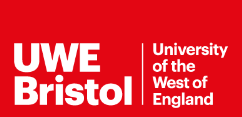Invited Plenary Speaker: Marco Marengo, a Professor of Thermal Engineering at the University of Brighton, UK

Advanced VOF Simulations of Flow Boiling
Advanced CFD simulations using an appropriate Volume of Fluid (VOF) solver are able to reproduce in a very accurate form the transport of bubbles in channels and therefore the convective flow boiling in mini- and micro-tubes. The simulations can be used for understanding many of the effects of liquid properties and surface characteristics, but also they may support the design of the channels, looking for example at the influence of the channel aspect ratio. In particular, the solver enhancement involves a treatment for spurious velocities dampening (a well-known defect of VOF methods), an improved dynamic contact angle treatment to accurately account for wettability effects as well as the implementation of a phase-change model in the fluid domain, accounting for conjugate heat-transfer with a solid domain. The simulations show that the local Nusselt number is more dependent on wettability characteristics for low heat fluxes, and less dependent on higher heat fluxes. The local, instantaneous heat transfer coefficient is higher for super- hydrophilic cases in comparison to hydrophilic. However, as the applied heat flux increases, hydrophilic and super-hydrophilic cases show a similar heat transfer enhancement with respect to the single-phase heat transfer in the considered micro-channel. Finally, superhydrophobic cases, show lower heat transfer performance with respect to the single- phase case. This is due to the fact that a vapour blanket is rapidly formed immediately after the nucleation, acting as an insulator of the heated solid surface. Furthermore, it is shown that the variation of the aspect ratio of a microchannel has a significant effect in the local heat transfer coefficient, due to an enhancement of the single-phase heat transfer in combination with the alteration of the underpinned bubble growth dynamics, which result in different contributions of contact line versus liquid film evaporation.
About the author:
Professor Marco Marengo is Professor of Thermal Engineering at the School of Computing Engineering and Mathematics, Director of the Advanced Engineering Centre and Chair of the Engineering Industrial Advisory Board at the University of Brighton, UK. In 1991 Prof. Marengo got a Master Degree in Physics cum laude at the University of Turin on Dynamical Systems and in 1996 he received a Ph.D. in Energetics at the Polytechnic of Milan. From 1998 to 2002 he has been Assistant Professor of Thermal Physics and then, until 2016, Associate Professor of Thermal Physics at the University of Bergamo, Italy. In 2014 he was appointed Full Professor of Thermal Engineering at the University of Brighton. From 2019 he is Associate Editor of the International Journal of Multiphase Flows. Editor-in-Chief of the Section ‘Thermal Management” of the MDPI Journal Energies. Guest Editor of MDPI “Energies” Journal, Advanced Thermal Simulation of Energy Systems. From 2009 to 2018 he has been European Editor of the International Journal "Atomization & Sprays". He is UK representative on the board of the International Heat Pipe Conference. Prof. Marengo is Adjunct Professor at York University, Toronto, Canada and Senior Research Fellow at the National Science Foundation of Portugal, Center for Innovation, Technology and Policy Research - IN+, Lisbon, Portugal. From 2005 to 2018 Marengo was Visiting Professor at the University of Mons-Hainaut. He has founded three spin-off companies. He is member of the scientific committees of various international conferences and Editorial board members of various scientific journals. Since 2015 he is co-director of the successful Course series LIDESP on “Advanced Course in Liquid Interfaces, Drops and Sprays” and since 2018 he is Chair of the International Workshop SWEP on “Surface Wettability Effect on Phase Change Phenomena”. He is leading the ESA Pulsating Heat Pipe scientific team, he is active in many ESA parabolic campaigns. He published more than 330 scientific papers, among which more than 80 in peer-reviewed International Journals. Prof. Marengo is an internationally recognised expert in fundamental and applied research of two-phase systems, associated with phase change heat transfer, for space and ground applications as well as in experimental and numerical modelling of phase-change heat transfer.
Professor Marco Marengo can be found under this link










